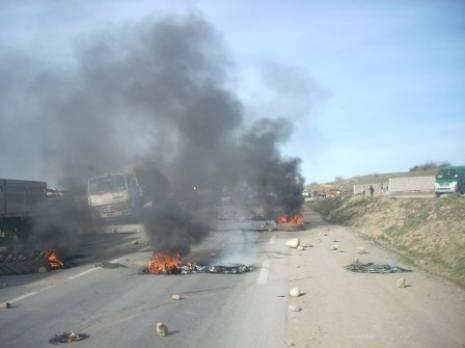 A third victim, 24-year-old Rolcy Ametis, the police shot in the head, neck and hip on Wednesday, July 17, 2013, while protesting the controversial death of Judge Jean Serge Joseph, succumbed to his injuries at State University Hospital late Friday July 19, confirmed officials. Among the seven victims of the forceful intervention of U.N. peacekeepers and the Haitian Police, a toddler also died from gunshot wounds, as several news reports indicated. Doctors also treated two other toddlers for asphyxiation suffered from tear gas inhalation.
A third victim, 24-year-old Rolcy Ametis, the police shot in the head, neck and hip on Wednesday, July 17, 2013, while protesting the controversial death of Judge Jean Serge Joseph, succumbed to his injuries at State University Hospital late Friday July 19, confirmed officials. Among the seven victims of the forceful intervention of U.N. peacekeepers and the Haitian Police, a toddler also died from gunshot wounds, as several news reports indicated. Doctors also treated two other toddlers for asphyxiation suffered from tear gas inhalation.
In spite of his family’s efforts, rushing him to the Haitian capital, hoping save his life, doctors pronounced Ametis dead two days after the incident that left four others seriously or critically wounded. Meanwhile, government officials have yet to release any official statements, justifying the use of lethal force on the protesters that barricaded major highways and burned old tires, demanding an explanation to Judge Jean Serge Joseph’s death. Instead, authorities sprayed the crowd with bullets, even shooting Marcel Joseph, the late judge’s cousin in both legs.
Joseph, the 58-year-old judge who presided over an alleged corruption case, involving President Martelly’s wife, Sophia St-Remy Martelly and son Olivier Martelly, died suddenly on Saturday, July 13, 2013, sending shockwaves throughout the country. While doctors that treated Judge Joseph concluded he died from a massive stroke, his colleagues contended that his unprecedented decision, on July 2, asking the Head of State to authorized PM Lamothe and several cabinet members to testify under oath, might have caused his death. In fact, many people that came forward since the news broke alleged that President Martelly personally pressured Joseph into reversing his ruling against the first family in a secret meeting that allegedly took place on July 11, 2013, two days before his death.
Shortly after assuming office, President Martelly published two presidential decrees, naming his wife and eldest son coordinators of government programs, giving them unparalleled authority over state institutions and access to state funds, as critics argued. Those actions had opposition leaders screaming nepotism, questioning the constitutionality of such unilateral decisions, since the Haitian Constitution forbade the practice. Consequently, civil rights lawyers dragged the first family to court, alleging Sophia and Olivier Martelly led a corruption den, which brought the case to Judge Joseph’s desk.
The news of his passing not only stunned the nation, but also sparked a wave of protests in his hometown l’Estere, a communal section of the Artibonite Department where the police assisted by UN peacekeepers welcomed them with live munitions. Several human rights organizations denounced the shooting as a deliberate attack on free speech and a act of repression designed to instill fear in the population, urging legal actions against the perpetrators. However, the government’s silence persisted, failing to even launch an investigation into the shooting. Instead, as the human rights organizations reported, the president’s wife showed up on the scene the day after the shooting and distributed food to the population.